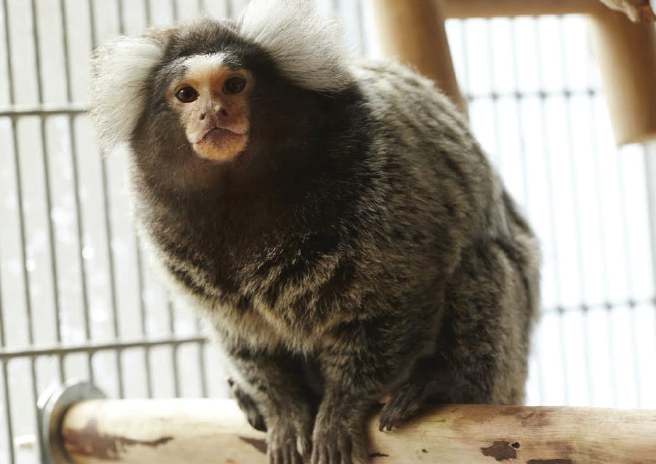 RSPCA CYMRU has launched a campaign calling for a ban on keeping primates as pets in Wales.
RSPCA CYMRU has launched a campaign calling for a ban on keeping primates as pets in Wales.
The charity’s scientists believe that primates can never be kept as pets without their welfare being compromised and are calling on the public, and decision-makers, to support a ban.
The animal welfare charity hopes Wales will join the list of 15 European countries which have implemented a ban of some kind. It is estimated that there are around 120 privately-kept primates in Wales, and in 2015, the RSPCA received more calls about primates traded or kept as a pet in Wales than in any of the previous 11 years.
Marmosets, capuchins and squirrel monkeys are by far the most common primates being kept as pets, destined for unnecessary suffering in an unnatural environment.
In a survey, RSPCA Cymru found 72% of those polled in Wales support a ban of the keeping of all primates as pets. The charity is now calling on supporters to urge their Assembly Members to support a ban.
RSPCA’s senior scientific officer, Ros Clubb, said: “It doesn’t matter how well intentioned the owner is, primates are not suitable pets. All primates, hand-reared or not, are wild animals. They are highly intelligent beings that need specialist care in captivity. The complex environment that a primate needs can never be provided in a house.
“Often they are living in bird cages, being fed sugary drinks and sweets and living in filthy conditions. Even when the owner has good intentions, the animals’ needs are not being met because primates are so difficult to keep and it is extremely complicated to ensure their welfare needs are being met.
“We fear there are hundreds more that are suffering behind closed doors because people do not know how to look after these animals properly and simply can’t provide what they need.
“The trend for keeping primates seems to be on the up – but they have very specific needs that can’t be met in a typical household and so suffering can be extreme. As well as dietary and environmental needs, primates are highly social animals and they have extremely complex behavioural and social needs – but sadly in many cases they are being kept as lone primates.”
Former Assembly Member Lorraine Barrett has spoken to RSPCA Cymru about the time she rehomed a primate from a pet shop in the early 80s. After feeling ‘desperately sorry for him’ she made the decision to buy the monkey thinking she could rescue him and make a difference to his life. He had been tied up with a collar and lead.
“The minute I walked in the house with the monkey I realised how out of my depth I was,” she said.
“He was wild. We had a wild animal in our house. One time he was on the top of the cupboard and jumped on my son’s head. I went to grab him and he bit me all around my arm. We were all just screaming. It was crazy. I know it can’t have been the monkey’s fault – it must have been such an incredibly stressful experience for him.
“Looking back, it was so scary how little information was available about how completely inappropriate it is to keep a monkey in a domestic environment. The only advice people need is that primates should never be kept as pets.”
Releasing details of Mrs Barrett’s experience, RSPCA Cymru wants to dispel the myth that keeping a primate is achievable in any home setting.
“These really are wild animals, not cuddly toys,” said Mrs Barrett. “The Government needs to ban the keeping of primates as pets not only to protect them from lives of misery, but also to protect the public.
“Please don’t repeat the same mistake as me. It really was one of the most traumatic experiences of my life. Primates should never ever be kept as pets.”

















Add Comment